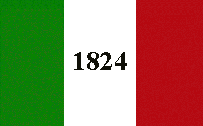Washington estimates the Gulf of Guinea will supply about a quarter of U.S. oil by 2015 and has sent military trainers to the region to help local navies secure shipping.
That quote up top is all you really need to know, when looking at how serious of a problem piracy could be for the world and for the US in the Gulf of Guinea. For that reason, I will start to focus more on that region, just because I have a hunch that we will see an increase in piracy there.
The thing is that these guys are learning from other successful models of piracy operation, and soon they too will achieve the same kind of success as the Somali pirates. Hell, I could imagine some Somali’s attempting to make an entry into that hunting territory. Although I am sure they will be edged out by equally aggressive criminals and investors. –Matt
Edit: I just came across this latest post by Tracking Energy Attacks. This is a great website and they are using Ushahidi to map all of these energy related attacks around the world. The author also expressed concern about this region, and here is a clip from the post:
I’m a little more interested in the developments in the Gulf of Guinea where based on my count there have been 24 reported successful attacks with the bulk of them coming off of the coast of Benin. Less than 10 attempted but unsuccessful attacks were reported. Piracy is also apparently a growing concern for Southern Africa with numerous attempted attacks occuring off the coast of Tanzania and north of Madagascar. Such trends have global energy supply implications given that “six million tons of oil are transported around South Africa’s western coastline every month” as well as regional energy production implications.
Italian tanker Anema e Core seized by pirates off Benin
24 July 2011
Pirates have hijacked an Italian diesel tanker off Benin in western Africa in an attack of the kind more usually associated with Somalia.
Assailants boarded the RBD Anema e Core early on Sunday in the Gulf of Guinea, officials in Benin and Italy confirmed.
Two of the 23 crew are Italians, the others Filipinos and a Romanian.
Benin’s navy said it was following the hijacked ship while Italy’s foreign ministry liaised with its owner in Naples.
Three pirates managed to board the ship 23 nautical miles (43km) south of Cotonou, the economic capital of Benin, Italian media said.
“Everything is being done to trace the pirates as quickly as possible,” Maxime Ahoyo, commander of Benin’s navy, told reporters in Cotonou.
The Gulf of Guinea has become increasingly important for its potential energy reserves which have attracted international interests, BBC West Africa correspondent Thomas Fessy reports from Dakar.
The US, for example, hopes to import about a quarter of its oil supplies from the region by 2015.
West African coast guards have been receiving US training to combat growing maritime insecurity.
Most recent attacks on shipping around Africa have been off its east coast, where Somali pirates have ranged deep into the Indian Ocean, but the danger in the west was already identified several years ago.
Story here.
—————————————————————-
FACTBOX-Key political risks in the Gulf of Guinea
Tue Jul 5, 2011
By Richard Valdmanis
A stretch of West Africa’s coast spanning more than a dozen countries, the Gulf of Guinea is a growing source of oil, cocoa and metals to world markets.
But rising rates of piracy, drug smuggling, and political uncertainty in an area ravaged by civil wars and coups have made it a challenging destination for investors seeking to benefit from the massive resources.
The Gulf of Guinea runs from Guinea on Africa’s northwestern tip to Angola in the south and includes Nigeria, Ghana, Ivory Coast, Democratic Republic of Congo, and Cameroon.
